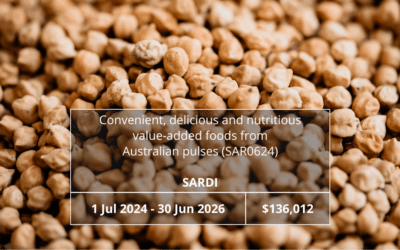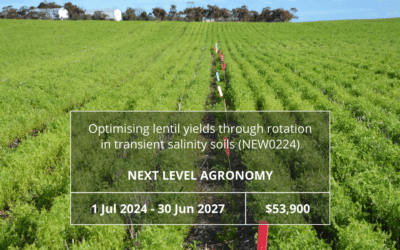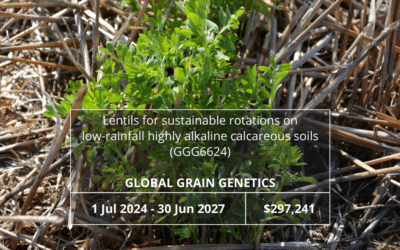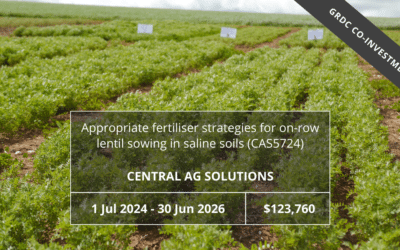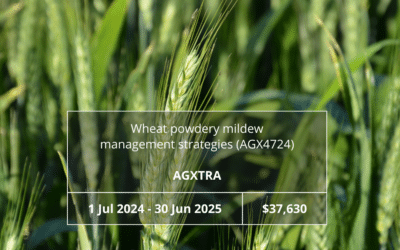This project aims to use a range of local pulses to make a range of attractive, delicious, nutritious and convenient pre-cooked food products that have wide appeal. This will include determining the appropriate processing steps for each grain type that would work in a commercial food manufacturing set-up to achieve acceptable grain texture and provide long shelf-life in can and/or pouch formats. The proof-of-concept products will be packaged in a variety of formats and tested with consumers, food manufacturers and food retailers.
Posts Tagged - research funding
Optimising lentil yields through rotation intransient salinity soils (NEW0224)
Jul 11, 2024 | Current Projects
This project aims to make transient saline soils more productive again for growing lentils through the use of a chemical fallow phase of the rotation. The fallow allows both soil moisture to be conserved through stubble load, helping for lentil establishment, and will also aim to reduce the area of saline affected soil for the following crops.
Lentils for sustainable rotations on low-rainfall highly alkaline calcareous soils (GGG6624)
Jul 11, 2024 | Current Projects
This project will improve the sustainability of SA’s diverse and expansive low rainfall cropping areas by expanding lentil production, as a legume break crop for cereals, on highly alkaline calcareous soils in these regions. It will build on the recent successful research, extension and expansion of lentil through the low rainfall Mallee type areas across South Australia, by targeting constraints to profitable production with a focus on the Upper Eyre Peninsula (UEP).
Appropriate fertiliser strategies for on-row lentil sowing in saline soils (CAS5724)
Jul 11, 2024 | Current Projects
This project aims to determine the residual benefit of on-row and off-row sowing and appropriate fertiliser strategies for sensitive lentil crops in phosphorus deficient and moderately saline calcareous soil types of Yorke Peninsula. Research will investigate management techniques of utilising residual phosphorous in a cereal phase along with phosphorous placement at seeding to optimise lentil grain yields and economic returns. This project is a co-investment, with GRDC providing 50% of the total funding.
Wheat powdery mildew management strategies (AGX4724)
Jul 11, 2024 | Current Projects
This project aims to demonstrate to growers and agronomists the effectiveness of existing and emerging wheat powdery mildew (WPM) control options across varieties with diverse susceptibility ratings. It will also raise awareness of the importance of cultural considerations with regards to WPM management and an understanding of pathogen resistance to commonly used fungicides. This project provides an opportunity to extend existing knowledge generated through current SAGIT-funded WPM projects.
Latest Media
- Strategies for mitigating frost damage in the Upper North region (UNF1724)
- An improved and rapid test to inform sodic soil management (UAD4624)
- Increasing pulse yields: focus paddocks to identify and manage soilborne constraints (UAD2624)
- Multi-scale monitoring of pests and beneficial insects in canola cropping (UAD1424)
- The impact of annual ryegrass seed size on harvest weed seed control mill efficacy (TCO6424)

